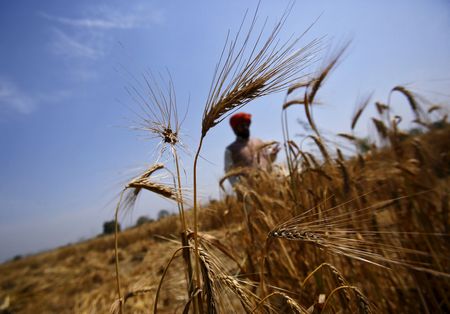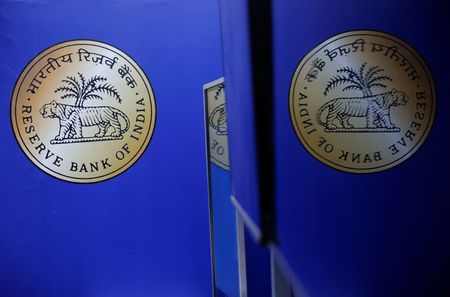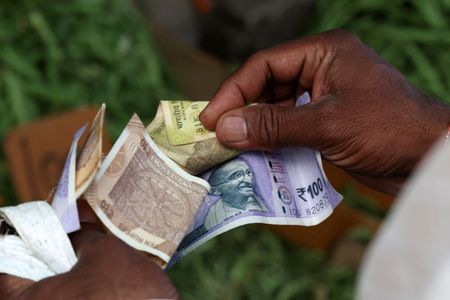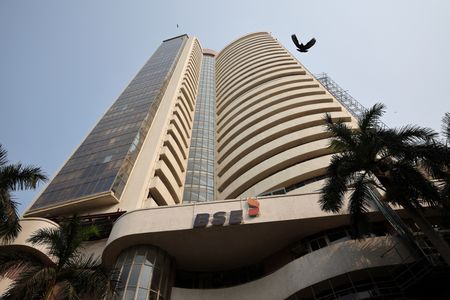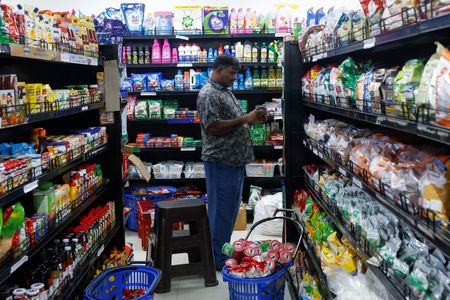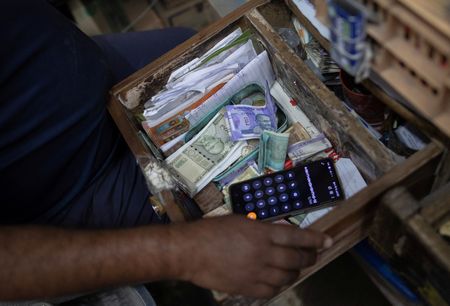By P.J. Huffstutter
CHICAGO (Reuters) -Chicago wheat futures hit the daily 70-cent trading limit cap on Monday after India banned exports of the grain, an abrupt policy change that fanned concerns about global supplies strained by Russia’s invasion of Ukraine.
The wheat rally sent spillover strength to corn futures, as global buyers, who were banking on supplies from the world’s second-biggest wheat producer, scrambled to respond, traders said.
But it weighed on soyoil futures, amid questions of ripple effects the ban could have on India’s import demand for vegetable oils, they said.
Chicago Board of Trade’s soft red winter wheat deferred months all hit contract highs.
And contract highs were hit across the board for K.C. hard red winter wheat and MGEX spring wheat futures, too.
The most-active CBOT soft red winter wheat contract settled the day up the daily trading limit of 70 cents at $12.47-1/2 a bushel – $1.16 a bushel off the $13.63-1/2 record this spring.
Trading limits for CBOT and K.C.
wheat will expand to $1.05 for Tuesday’s session, CME Group said Monday afternoon.
India’s embargo, prompted by a heat wave that has cut harvest prospects and sent domestic prices soaring, has hit hopes of record wheat shipments from the country in the coming year that would alleviate war-reduced supply from Ukraine.
Drought in the southern U.S. Plains and parts of France are eroding production potential in other major exporting countries, too.
And the global supply chain ripple effects off the news were almost immediate: India’s wheat export ban trapped some 1.8 million tonnes of grain at ports, leaving traders facing heavy losses from the prospect of selling onto a weaker domestic market.
Most-active CBOT corn ended up 28-1/4 cents to $8.09-1/2 a bushel, while soybeans settled up 10 cents at $16.56-1/2 a bushel.
Given India’s ban, traders will be scrutinizing weekly U.S.
crop data later on Monday for an update on wheat conditions and progress in corn and soybean planting, which has been delayed by cool, wet weather.
“I’m watching it like a hawk,” said Jack Scoville, market analyst at The Price Futures Group.
“We need every bushel of yield we can manage this year.”
(Additional reporting by Enrico Dela Cruz in Manila and Gus Trompiz in Paris; Editing by Chris Reese and Sandra Maler)

